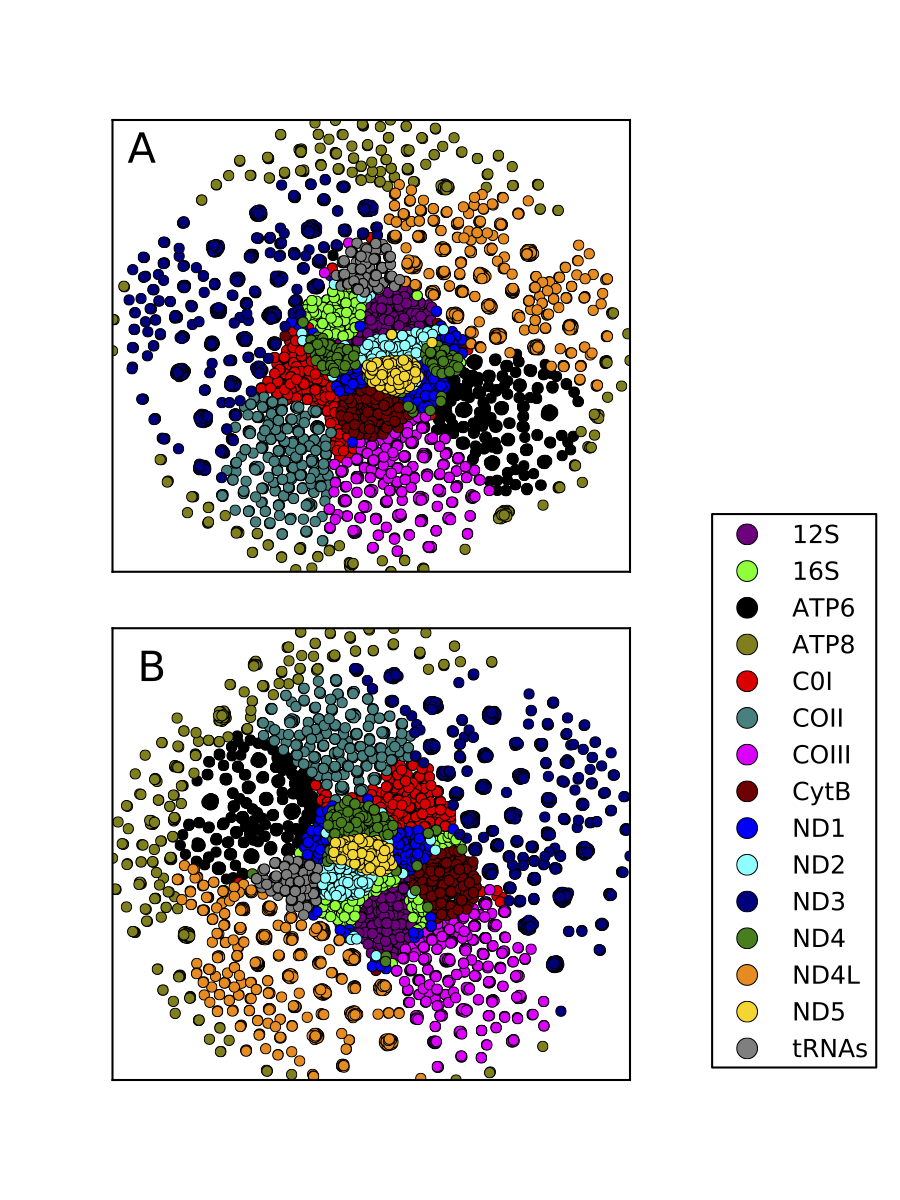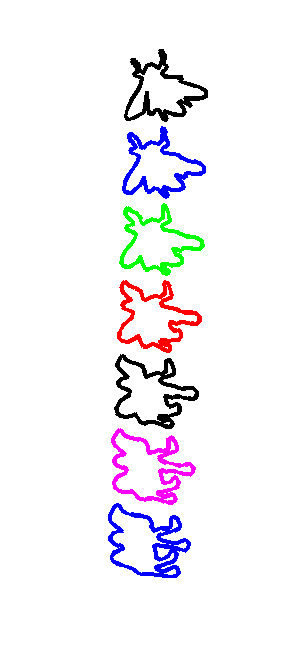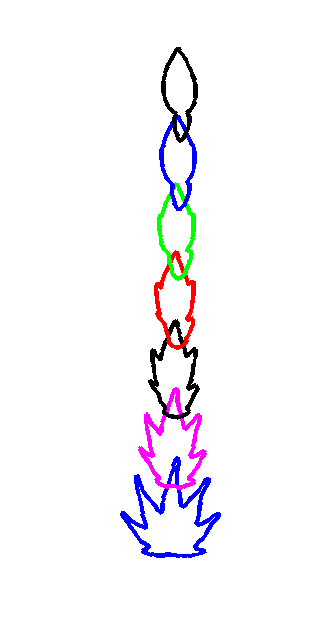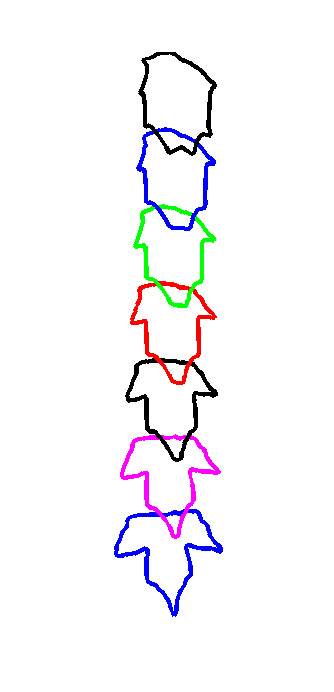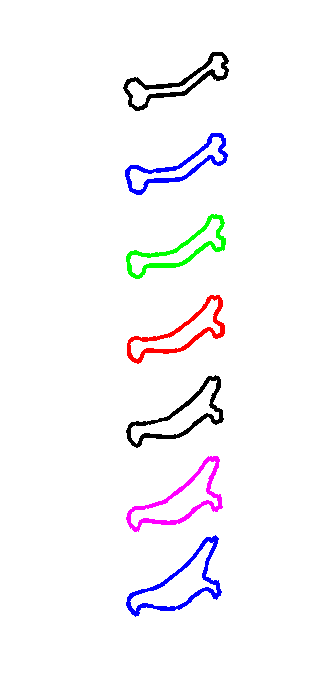Foundations of Computational Mathematics II Topics
Biomathematics, Financial Mathematics, and Applied and Computational Mathematics at Florida State University
Polynomial Interpolation
- Interpolation Overview
- Interpolation vs. Approximation
- Existence and uniqueness of polynomial interpolant
- Forms of Interpolating Polynomials
- Lagrange form
- Newton form
- Barycentric form
- Equidistant point forms
- Computational complexity of formation, evaluation, updating
- Polynomial Interpolant Error
- Pointwise error
- Conditioning with repspect to function values
- Conditioning with respect to representation
- Stability and practical limitations
- Uniform convergence of interpolating stragtegies
- Bernstein's Theorm and polynomials
- Runge's phenomenon
- Hermite Interpolation
- Monomial form, existence and uniqueness
- Lagrange form
- Newton form
- Osculating polynomial and its relationship to other interpolants
- Pointwise error
- Piecewise Interpolation
- Forms of polynomial within an interval:
- Monomial
- Lagrange/Baycentric
- Newton
- Hermite
- Basis forms
- Pointwise error
- Achieving a prescribed error via interval size selection
- Splines
- Smoothness as a constraint in polynomial splines
- Cubic splines
- Choice of local form
- Boundary conditions and system of equations defining coefficients
- Approximation error in splines
- Spline bases and B-splines
- Multidimensional Interpolation
- Dimension of general problem
- Special cases of 2-dimensional interpolation: mesh and triangulation
- Basis forms
Parametric Curves
- Bernstein polynomials and Bezier curves
- B-spline parametric curves
- De Casteljau's Algorithm
Rational Interpolation
- Necessary and sufficient conditions for the existence of a rational interpolant
- Inverse and reciprocal difference forms
- Pade approximation
Approximation
- Best (Minimax) Polynomial Approximation
- Characterization of minimax polynomial
- Analytical solutions for special problems
- Chebyshev (Near Minimax) Approximation
- Minimal ∞-norm monic polynomial
- Relationship to pointwise interpolation error
- Near-minimax polynomials
- Relationship in error to minimax polynomial
- Lω,2 Approximation
- The vector space Lω,2 and associated norms
- Complete orthogonal sequences and bases
- Orthogonal polynomials and their basic properties
- Generalized Fourier Series
- Least squares approximation on a finite dimensional subspace of Lω,2
- Economization of power series using orthogonal polynomials
- Discrete least squares approximation using orthogonal polynomials
Numerical Quadrature
- Newton-Cotes Quadrature
- Interpolatory quadrature
- Interpolatory quadrature error
- Newton-Cotes closed and open formulas
- Degree of exactness, order of infinitesimal, and error
- Composite Newton-Cotes Quadrature
- Composite Newton-Cotes open and closed formulas
- Error for Composite Newton-Cotes open and closed formulas
- Achieving a prescribed error via interval size selection
- Adaptive Quadrature
- Step halving
- Error estimation and correction
- Efficient Newton-Cotes adaptive quadrature
- Recursive adaptive quadrature
- Gauss Quadrature
- Maximum degree of exactness and orthogonality
- Gauss Legendre quadrature open formulas
- Gauss Labatto quadrature closed formulas
- Gauss Radau quadrature formulas
- Gauss Legendre quadrature error
- Alternate weight functions and Gauss quadrature
Discrete Fourier Transform
- Trigonometric approximation and interpolation
- Transforms, Gauss quadrature and the Generalized Fourier series
- Discrete Fourier transform and unitary matrices
- DFT aliasing
- FFT
- Matrix structure and the FFT
- Polynomial structure and the FFT
- Cooley-Tukey FFT
Numerical Integration of Ordinary Differential Equations
- Differential operators and difference operators
- Discretization error (local truncation error) and consistency
- Convergence and consistency
- Order of convergence and order of discretization error
- Local error and discretization error
- Stability
- 0-stability
- Absolute stability
- Stability, consistency and convergence
- Linear multistep methods
- Derivation of methods: Adams-Bashforth, Adams-Moulton, BDFs
- Consistency of linear multistep methods
- 0-stability, weak, strong and absolute stability of linear multistep methods
- Convergence of linear multistep methods
- Predictor-Corrector methods
- Error estimation and stepsize control
- Runge Kutta methods
- One-step r-stage methods general form
- Butcher array form
- Consistency analysis of standard Runge Kutta methods
- Achievable order for explicit methods
- Embedded pair methods
- Derivation of implicit Runge Kutta methods based on collocation and Gauss quadrature
- 0-stability and absolute stability of Runge Kutta methods
- Computational complexity of explicit, implicit and SDIRK Runge Kutta methods
- Computational complexity compared to linear multistep methods
- Stiffness
- Definition of stiffness
- Absolute stability is not enough.
- A-stability is not enough.
- Stiff decay
- Methods appropriate for stiff situations.
